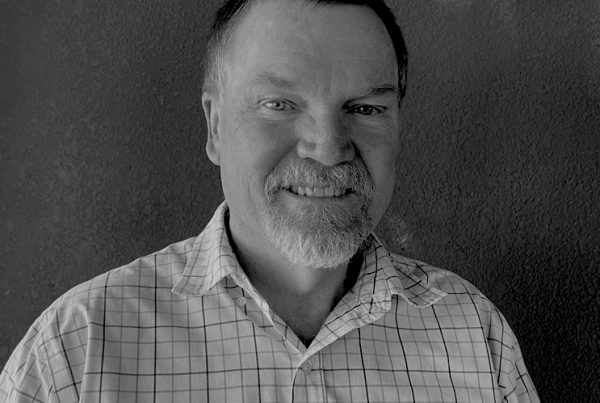Unbiblical leaders and teachings do grave damage to the church, but so do spiritually unhealthy leaders, even if they are orthodox in the faith. This workshop will encourage an environment of health in your ministry by suggesting seven attitudinal shifts every church leader could embrace today.
Audio Only
Goal
“We were buried therefore with him by baptism into death, in order that, just as Christ was raised from the dead by the glory of the Father, we too might walk in newness of life.” (Romans 6:4)
Newness of life is ours in Christ, and I would like to talk to you about increasingly applying this newness of life into your ministry work.
The goal of this brief workshop is to encourage a ministry culture — in you, in your family, and in your church — which trends towards health.
Scripture is clear: unbiblical leaders with unbiblical teachings do the gravest damage to God’s people. But, secondarily, it is not hard to see how spiritually unhealthy people also damage the body of Christ, even if they are orthodox in the faith.
A Paramount Discussion
So this will be a brief discussion about cultivating spiritual health. By saying it this way — “spiritual” health — I am not saying that this is merely one category of health. I am not saying you should find another workshop about mental, physical, financial, or emotional health.
Though those topics are important and worthy of individual consideration, I believe spiritual health will impact all of those areas of your life.
Not A Spiritual Disciplines Talk
Also, this will not be a talk about spiritual disciplines. If you are watching this teaching, I assume you are part of church leadership and already know about the importance of reading Scripture, praying, fasting, and the like. I will close our time together with some applicational suggestions, and one of them will include the spiritual disciplines, but this is not the main point of this talk.
Attitudinal Shifts
What I would like to focus on, however, are seven attitudinal shifts that may help contribute to a healthier ministry environment. None of these will be revolutionary for you, but I find each attitude requires constant upkeep, and that steady reminders about each have been helpful to my pastoral soul over the past 20 years of ministry.
1. Character Matters.
The pastoral epistles, and their requirements for deacons and pastors, help remind us of the importance of character. It is one thing to be gifted, dynamic, or attractive in ministry work. But it is another thing entirely to be a person of good character. Gifting should never be shunned, and persuasiveness is good, but fruitfulness does not cover a multitude of sins.
Yes, character matters. This should not be overlooked as we develop other leaders, but it should be attended to in our own lives as well. Stories of moral failure in the pastorate abound, but we should not only focus on the more scandalous gaps in character. We should be sober-minded, self-controlled, not abusers of wine, respectable, hospitable, gentle, not quarrelsome, and not lovers of money (1 Timothy 3:2-3).
2. Be A Servant.
Does our modern culture make the temptation to celebrity stronger now than at any other time in the church? Internet connections enable us to speak to a worldwide audience. This allows us to amass huge followings even if our views only resonate with a tiny splinter of the world’s population. And sometimes it seems the more outrageous or inflammatory or sensational or slick, the more people will tune in.
But we aren’t called to celebrity. We are called to be servants. First, servants of Jesus Christ. This is all-important because one quick path to ministry unhealth is to forget you first serve God. He is primary. You must follow his orders. With that settled, we are to serve one another. As we minister in our local congregations, we must see ourselves as gifts the ascended Christ has given to his people. We belong to them.
3. Jesus Is The Hero.
It is a constant ministry temptation to be the hero. Even with an outward posture of modesty, leaders can draw people to themselves. Displays of transparency, confessions of struggle, or phrases like, “Don’t look to me, look to God,” can be used to mask a desire to be seen as heroic.
But we can’t atone for even our own sins, let alone the sins of the people. Jesus is the savior. Jesus is the hero. He is the one we are to work tooth and nail to get people to love and appreciate and honor. He is the one with the resources they need.
And he cannot disappoint them. Though our flesh wants to be esteemed, let us be people who walk in the Spirit. And the Spirit exalts Christ.
4. Ask The Best Questions.
I love talking with others about church. I love researching and investigating ministry methods. And I thoroughly enjoy talking with brothers and sisters in Christ about what God is doing among them. We should not be afraid of these conversations.
But, especially with those you are in closer fellowship and relationship with, be sure to ask the best questions. “How’s your church?” can be a great question. But make sure you have people in your life who will ask the best questions.
- How’s your walk right now?
- How’s your marriage? Family?
- How’s your soul?
5. Have Margin.
Christ’s servants have many different personality types. Some can handle thousands of incoming voices and connections. Others must be more judicious and guard their minds. Some can personally lead dozens of staff members. Others must delegate more quickly. Some can be on a thousand text threads in their congregation. Others might need to step away from the phone more often.
But, whatever the gifting and focus of your life, I will advocate for boundaries in ministry. We aren’t omniscient, omnipresent, or omnipotent. This is another way of saying we have limitations. So a life without boundaries, without margin, is a life attempting the divine. But you will not walk on water, at least not regularly. The normal pace of life, if you want to make it to the finish line running hard, will require margin and boundaries.
6. Develop Relationships.
The Apostle Paul is widely regarded as the greatest mind of Christianity. For all his gifts, he knew he needed others. He always served God with others. But a simple look at his familiarity with the churches of his time shows us he wasn’t only concerned with building up his ministry team. He was in loving relationships with many people, whether they joined him on a missions trip or not.
Too many of us feel isolated in the work of the Lord. Without friends, many of Christ’s servants are tempted to feel they are “alone on the mountaintop,” and that no one understands them. But when you develop friendships, your leadership is greatly helped.
But how do friends help you? First, ministry work is tiring work, and friends, especially those who don’t understand the throes of ministry work all that much, can refresh you. Second, ministry work is sobering work, and friends can help bring gladness to an otherwise serious life. Third, ministry work is honorable work, and sometimes people will regard you and your work highly, but a good friend can help bring you back down to earth. Fourth, ministry work is perplexing work, but a good friend will often give you the wisdom you need to go on.
7. Protect Sabbath Rhythms.
One of the major challenges of the ministry is the simple reality that the work is never done. Though we might accomplish various projects, though we get to watch salvation occur in the lives of others, and though various metrics can help us see progress, we won’t hear “mission accomplished” until we meet the Lord. Because of this, we might easily succumb to the temptation to overwork.
For this reason, we must protect Sabbath rhythms. I recommend an hour each day, a day each week, and one long break (as long as your church will allow) each year.
Last summer, I confess I received a sabbatical after 20 years of ministry at Calvary Monterey, and it was an altogether powerful experience. Not only did I rest, but I was renewed in my call to our community, refocused on my need to be a word and prayer pastor, emboldened in the gospel, given insight into the next decade for my children’s lives, grew in my appreciation for my bride, given perspective about our church family, and watched the raising up of other leaders within our church while I was away.
Suggestions
So those are seven attitudinal adjustments I recommend. In closing, let me focus on three applications you can take home today.
Suggestion #1. Focus On Your Personal Walk
Don’t allow your walk with God to slip. Be constant in prayer. Stay in the word as nourishment for your own soul, not for sermon preparation. Walk with God.
Suggestion #2. Develop Ministry Connections
Find other ministry workers you can connect with, and keep those relationships constant. You can encourage one another in special ways, pointing the other to their great hope in Christ while in the battle that is ministry.
Suggestion #3. Nourish Your Inner Person
Read books and listen to teachings that strengthen you as a person. Find resources that encourage spiritual, mental, emotional, physical, relational, marital, and pastoral health. Let them nudge you — ever increasingly — in the right direction.
The more these attitudes become common in you, and in the people around you, the more your church’s whole culture will trend towards spiritual health. A culture like that will do more than eliminate problems; it will produce incredible fruit.
God bless you.

Nate Holdridge has been the senior pastor of Calvary Monterey since 2008. He loves Jesus and the Bible Jesus gave to the world. Since 1996, the Scripture has captivated Nate’s mind and heart, believing the entirety of the book points to the Son of God, Jesus Christ, the righteous. Having grown up in the home of a pastor, at age 18, Nate began to sense a strong desire to communicate Scripture with whomever God would allow him to speak to, and he has committed himself to that responsibility ever since.























